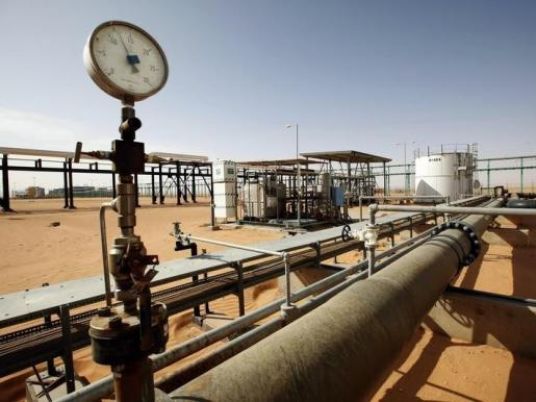
Libya was trying to end a strike at the port of Hariga so that it can reopen the country's last working onshore export terminal there and prevent the closure of its largest still functioning oilfield, officials said on Monday.
On Saturday, Libya shut most operations at the eastern port, located near the border with Egypt, after security guards complaining they had not been paid prevented a tanker from docking.
The closure could reduce Libya's oil exports to 100,000 barrels per day or less, according to calculations based on previous official data. The OPEC member nation used to pump 1.6 million bpd before the 2011 uprising that toppled Muammar Gaddafi and plunged the country into turmoil.
Libya's oil industry is now caught in the middle of a struggle between two rival governments and their allied armed factions, who are fighting for control of the North African country.
Two offshore fields are still exporting oil, but all onshore ports and major fields have closed due to fighting or because factions have blocked pipelines to prevent their rivals from benefiting from crude oil revenues.
Only the small port of Brega in the east is still open. It is used to supply the 120,000 bpd Zawiya refinery, which is needed to provide fuel for western Libya.
The internationally recognised government of Prime Minister Abdullah al-Thinni fled to the east when a faction called Libya Dawn seized Tripoli in August, reinstating the old parliament and setting up a rival administration.
State oil corporation NOC and the central bank have tried to stay out of the conflict but both governments have appointed separate heads to run the energy sector.
The Hariga terminal used to export 120,000 bpd until members of a state petroleum protection force known as the PFG started their action on Saturday.
"We tried allowing an oil tanker to dock at the port but the PFG members prevented it this morning," said Omran al-Zwie, spokesman for state port operator Arabian Gulf Co (AGOCO), part of the National Oil Corp (NOC).
He said AGOCO was in contact with the strikers and trying to persuade them to allow the port to be reopened.
"AGOCO is still making calls to reopen the port, otherwise we will be forced to close the Sarir oilfield as there will not be enough space for storage," he said.
AGOCO used to produce around 131,000 bpd from its southern Sarir and Messla fields, NOC data from last month shows. Sarir is the biggest field still producing after the southwestern El Sharara field halted work when it became caught in a confrontation between the two rival factions.
The Sarir field also feeds the 20,000-bpd Tobruk refinery. Hariga port remains open for fuel imports needed for the local market, a port official said.
The collapse in Libya's oil exports has caused a budget crisis, delaying salary payments, halting development projects and hampering the supply of drugs to hospitals or textbooks for schools.
Cities such as Tripoli and Benghazi in the east face power outages lasting several hours a day because some gas fields have also stopped working due to the fighting.
Hariga has closed several times due to strikes over payment demands from guards, which have in the past been resolved within a week or two.




